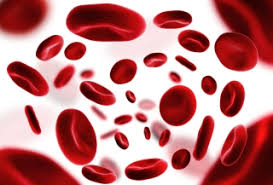 In our last post on the Medical College Admissions Test (MCAT), we discussed the integration of endocrinology and physics in the cardiovascular system. This month we will dive in further and discuss the hematologic system that drives the cardiovascular system and how to apply concepts from genetics and chemistry.
In our last post on the Medical College Admissions Test (MCAT), we discussed the integration of endocrinology and physics in the cardiovascular system. This month we will dive in further and discuss the hematologic system that drives the cardiovascular system and how to apply concepts from genetics and chemistry.
MEdical School News and MCAT Strategy
Stay current with the latest med school admissions news and proven MCAT strategies.
Posts by Jordan Salley:
Don't Go Breaking My Heart: Cardiology on the MCAT
 Cardiology is typically a favorite topic for most students. The heart is one of the most revered organs and the majority of students are taught baseline information about the heart during their primary school education. The American Association of Medical Colleges (AAMC) also loves the cardiovascular system and often tests students’ knowledge of it in the Medical College Admissions Test (MCAT). Additionally, this cardio knowledge will serve you well as a future medical student since cardiology tends to be one of the most difficult courses. This article will discuss the cardiology content on the MCAT, interdisciplinary connections for this content, as well as some tricks and tips on how to maximize cardiology questions in the Biological and Biochemical Foundations of Living Systems section on the MCAT.
Cardiology is typically a favorite topic for most students. The heart is one of the most revered organs and the majority of students are taught baseline information about the heart during their primary school education. The American Association of Medical Colleges (AAMC) also loves the cardiovascular system and often tests students’ knowledge of it in the Medical College Admissions Test (MCAT). Additionally, this cardio knowledge will serve you well as a future medical student since cardiology tends to be one of the most difficult courses. This article will discuss the cardiology content on the MCAT, interdisciplinary connections for this content, as well as some tricks and tips on how to maximize cardiology questions in the Biological and Biochemical Foundations of Living Systems section on the MCAT.
What Exactly is a Nephron?: A Guide to Physiology on the MCAT
When Should I Take the MCAT?
 College in and of itself is a daunting process for most students. Studying constantly for twelve to eighteen hours of course work, juggling extracurricular activities, and trying to maintain an active social life can be challenging. Add in aspirations to attend medical school and suddenly you are overwhelmed. Needless to say, this entire process requires a significant amount of planning. Hopefully by the end of this article you’ll have at least resolved one concern on your list and answered the question of when to take your medical college admission test (MCAT).
College in and of itself is a daunting process for most students. Studying constantly for twelve to eighteen hours of course work, juggling extracurricular activities, and trying to maintain an active social life can be challenging. Add in aspirations to attend medical school and suddenly you are overwhelmed. Needless to say, this entire process requires a significant amount of planning. Hopefully by the end of this article you’ll have at least resolved one concern on your list and answered the question of when to take your medical college admission test (MCAT).
To Cram or Not to Cram: A Guide to the Week Before Your MCAT
 It has been close to a hundred days, or at least it feels that way. You’re a week away from something you have been anxiously planning and studying for, your Medical College Admissions Test (MCAT). Students in this last week of studying often reach one of two emotional states: anxiety or exhaustion. In this article we will discuss how to best combat these two common stages in the study process and how to utilize that final week prior to taking your admissions test.
It has been close to a hundred days, or at least it feels that way. You’re a week away from something you have been anxiously planning and studying for, your Medical College Admissions Test (MCAT). Students in this last week of studying often reach one of two emotional states: anxiety or exhaustion. In this article we will discuss how to best combat these two common stages in the study process and how to utilize that final week prior to taking your admissions test.
Should I Retake the MCAT?
 Application season is quickly approaching, which means that Medical College Admissions Test (MCAT) score reports from last year and this winter break are beginning to be released. While some students will achieve their target scores, others may fall just short of their goals. Many students are then faced with the question of, “Should I retake my MCAT?” This prompts a myriad of other questions along with it. Below we’ll discuss when you should consider signing up for a retake and what to consider if you decide to take the test again.
Application season is quickly approaching, which means that Medical College Admissions Test (MCAT) score reports from last year and this winter break are beginning to be released. While some students will achieve their target scores, others may fall just short of their goals. Many students are then faced with the question of, “Should I retake my MCAT?” This prompts a myriad of other questions along with it. Below we’ll discuss when you should consider signing up for a retake and what to consider if you decide to take the test again.
